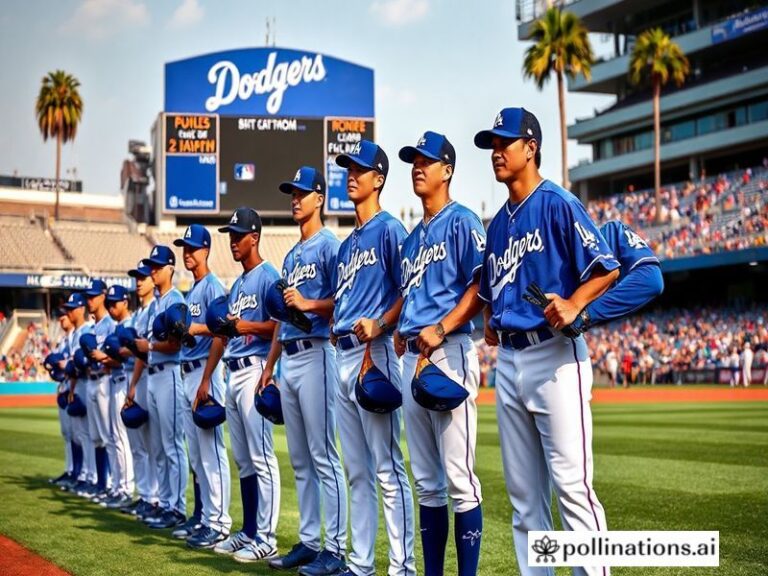Horns Across the Globe: How a State-Sized Football Schedule Quietly Runs the World (or at Least Pretends To)
DALLAS, Texas – Somewhere between the champagne hangovers of Davos and the drone strikes over the Red Sea, the planet has paused to inspect a document that will determine absolutely nothing about global interest rates, the price of wheat, or whether your cousin in Kyiv will have electricity tonight. Yet here we are, staring at the freshly released Texas Longhorns football schedule like it’s the latest fatwa from the Federal Reserve.
The 2024 slate—announced Tuesday with the solemnity of a papal conclave—features the usual parade of sacrificial Southwestern colleges, an SEC baptism against Michigan in Week 2, and the annual Red River Shootout that turns the Cotton Bowl into a Hieronymus Bosch painting dipped in burnt orange. From Lagos to Lahore, the reaction has been a collective shrug followed by frantic Googling to find out what, exactly, a “Longhorn” is and why 100,000 Texans will howl at it under stadium lights while the world’s ice caps politely file for divorce.
Let’s zoom out. In a year when the Arctic registered tank-top weather and Boeing’s doors began falling off like cheap fridge magnets, the geopolitical implications of college football are, on paper, zero. But soft-power metrics tell a different story. The University of Texas at Austin—endowment larger than half of sub-Saharan Africa’s GDP—exports burnt-orange merchandise to 102 countries. That crimson Longhorn silhouette appears on bar televisions from Bali to Bogotá, usually right after the English Premier League, right before the inevitable breaking-news ticker about another coup. It is, in other words, America’s most successful involuntary cultural attaché since Coca-Cola.
Consider the schedule’s tent-pole dates. On October 12, Texas hosts Georgia in a matchup that ESPN International will beam into 190 territories at a moment when the United Nations is begging member states for spare change to keep peacekeepers in Mali. The broadcast will generate more ad revenue in 60 minutes than UNICEF’s entire annual budget for cholera vaccines. Somewhere, a Ghanaian graduate student writing a thesis on neocolonial soft power will watch the coin toss and mutter, “This is the empire now—helmet stickers and Dr Pepper.”
Then comes November 2, Texas A&M at Kyle Field, a rivalry so old it predates NATO. Analysts in Brussels—yes, they do have opinions—note that the Aggies’ military-inspired battalion march looks suspiciously like a NATO field exercise, only with better choreography and less strategic ambiguity. The game will kick off at 2:30 p.m. Central, prime time in Tokyo, where viewers will marvel that Americans schedule trench warfare between academic institutions and still wonder why their student-loan debt rivals Italy’s national deficit.
Of course, the rest of the planet has questions. Why does a “non-conference” game still count toward something called the College Football Playoff, a tournament so exclusive it makes the UN Security Council look like open-mic night? Why does the Longhorns’ bye week (October 26) coincide with the U.S. Treasury’s quarterly refunding announcement—mere coincidence or divine confirmation that the Almighty schedules around Texas? And why, in the name of all that is holy, does the schedule list “TBD” for kickoff times, as though the universe itself is waiting for Amazon Prime to pick a slot?
The cynical read—our specialty—is that this 12-game liturgy exists to launder civic pride into television money, alumni donations, and political goodwill. Governor Abbott will glad-hand in the luxury suite while Austin’s homeless camps shuffle a quarter-mile eastward. Qatar Airways will flash across the jumbotron just as the university’s petroleum-engineering lobby signs another LNG deal. And somewhere in the student section, a freshman wearing a Bevo costume will pass out from heatstroke, thereby achieving the only authentically bipartisan feat in American politics: uniting everyone in concern for the ambulance bill.
By December, if the Longhorns reach the SEC Championship, global supply-chain managers will quietly pray they lose early so the port of Houston isn’t gridlocked by celebratory brisket runs. The rest of us will pretend the outcome alters cosmic balance, then return to our regularly scheduled apocalypse.
In the end, the 2024 Texas Longhorns schedule is neither salvation nor damnation—just another immaculate distraction, served with a side of queso, while the world burns politely in the background. Kickoff is at 11 a.m. local, which converts to whatever time zone your despair currently occupies.







